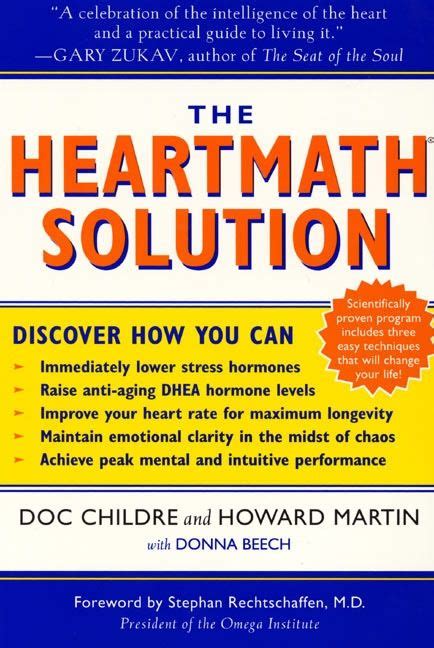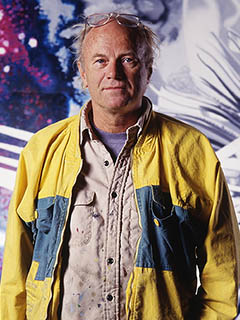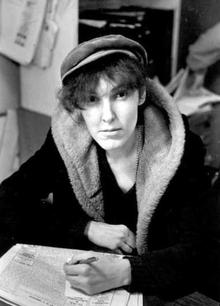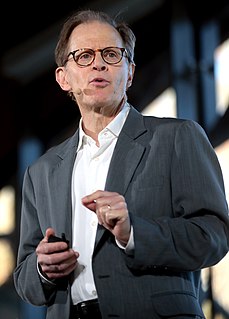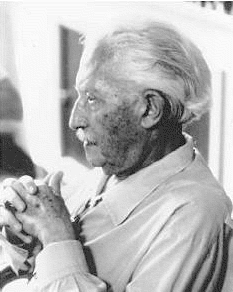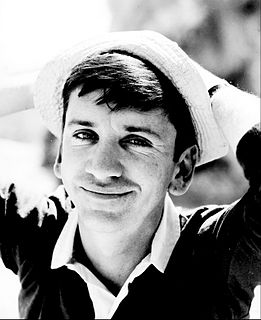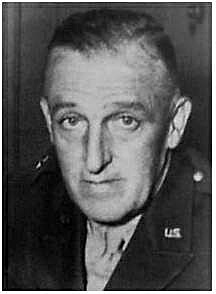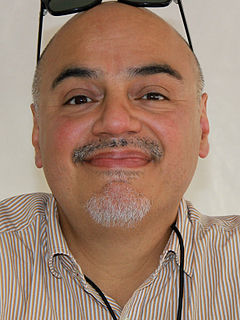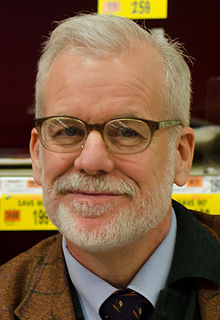Top 1200 Experiences Quotes & Sayings - Page 5
Explore popular Experiences quotes.
Last updated on April 20, 2025.
You will have significant experiences. I hope that you will write them down and keep record of them, that you will read them from time to time and refresh your memory of those meaningful and significant things. Some may be funny. Some may be significant only to you. Some of them may be sacred and quietly beautiful. Some may build one upon another until they represent a lifetime of special experiences.
Avoid People and Situations That Upset You. Those things, people, situations, and experiences you dont like--avoid them. Stay away. Walk away. Do something else. Some might call this cowardly. I call it smart. The world is brimming with things, people, and experiences. We will never experience all of them if we live to be 10,000. So why not associate with the ones that naturally please you?
I have ventured out and written about real-life experiences that I haven't gone through myself, but I've known people to go through them. In the past, I've always written about my experiences and people related to that, but there's a lot of other things that I've never written about that people have gone through.
Heavenly Father has made each of us unique. No two of us have exactly the same experiences. No two families are alike. ... Yet a loving Heavenly Father has set the same path to happiness for all of His children. Whatever our personal characteristics or whatever will be our experiences, there is but one plan of happiness. That plan is to follow all the commandments of God.
The work of cultivating experiences called "peak experiences" or "mystic moments" or "breakthroughs" until they become more accessible is part of the essential nature of genuine spiritual discipline. These are moments, at the very least, of approaching the experiential verification that there does exist something Higher within and perhaps also outside of ourselves. Moments at the very least of approaching what the religions call God.
Looking back through the mists of time, I recall some distinctly religious experiences in my teens--when I was only fourteen years old to be precise. These experiences opened my mind to the idea of a Creator and that caring for other living things was a Christian duty. My parents were not strongly religious at the time and when I announced at that youthful age that I wanted to be a priest, it not unnaturally provoked some incredulity, even mirth. In the same year, I became a vegetarian, which--for family and friends--was even more vexing.
The book is finished by the reader. A good novel should invite the reader in and let the reader participate in the creative experience and bring their own life experiences to it, interpret with their own individual life experiences. Every reader gets something different from a book and every reader, in a sense, completes it in a different way.
Old age is the fourth stage. By the time one reaches this stage of his journey, he must have discovered that the joys available in this world are trivial and fleeting. He must be equipped with the higher knowledge of spiritual joy, available through delving into the inner spring of Bliss. Through his experiences, his heart must have softened and be filled with compassion. He has to be engrossed in promoting the progress of all beings without distinction. And he must be eager to share with others the knowledge he has accumulated and the benefit of his experiences.
I have a love-hate relationship with New Orleans, which is the strongest sort of relationship. I've had some extraordinary, beautiful, poetic experiences in this city and I've had some terrible experiences in this city. I'm drawn to New Orleans, in many ways feel I grew up in New Orleans, even though I'm from the West.
What you put out comes back. The more you sincerely appreciate life from the heart, the more the magnetic energy of appreciation attracts fulfilling life experiences to you, both personally and professionally. Learning how to appreciate more consistently offers many benefits and applications. Appreciation is an easy heart frequency to activate and it can help shift your perspectives quickly. Learning how to appreciate both pleasant and even seemingly unpleasant experiences is a key to increased fulfillment.
The male is just a bundle of conditioned reflexes, is incapable of a mentally free response, is tied to his early conditioning, is determined completely by his past experiences. His earliest experiences are with his mother, and he is throughout his life tied to her. It never becomes completely clear to the male that he is not part of his mother, that he is him and she is her.
I think this fear of insanity is comparable to the fear people once had of falling off the edge of the world. Or the fear of heretics...What's happening is that each year our old flat earth of conventional reason becomes less and less adequate to handle the experiences we have and this is creating wide-spread feelings of topsy-turviness. As a result we're getting more and more people in irrational areas of thought...occultism, mysticism, drug changes and the like...because they feel an inadequacy in classical reason to handle what they know are real experiences.
I confessed recently to an old friend, "I realized I was looking at you, in your visit, through old glasses. Speaking old words. Telling old stories. I realize that in my life I've made so many physical changes and I need to give my spirit time to catch up." Time for my spirit to look at my friend through the new glasses of current life experiences. Old friends are precious. They become even more treasured when they are wrapped in the currentness of life experiences and not relegated to the past in which they once lived.
I think what happens in a religious life is that we have those experiences of affirmation and that one starts to live a Christian life or a Jewish life or a Muslim life or a Buddhist life, by affirming that affirmation each day. Each day you say 'Yes' to that Yes. So the life of being a Christian for example, is always a life of double affirmation, that you each day say 'Yes' to those counter-experiences of saying 'Yes', even when you're not experiencing them at that time, you're remaining loyal to that experience.
A lot of people talk about life. Some love it. Some disparage it. And a few realize that life can be what you make it because they have learned from past experiences. Lessons learned from these experiences have often contributed greatly toward seeing the possibilities in what some people call "the game of life." When we've "been there" and "done that," we can have as good of an idea of what we don't want as what we do want. Experience is certainly an excellent teacher!
You know these things as thoughts, but your thoughts are not your experiences, they are an echo and after-effect of your experiences: as when your room trembles whe na carriage goes past. I however am sitting in the carriage, and often I am the carriage itself. Ina man who thinks like this, the dichotomy between thinking and feeling, intellect and passion, has really disappeared. He feels his thoughts. He can fall in love with an idea. An idea can make him ill.
Words are acoustical signs for concepts; concepts, however, are more or less definite image signs for often recurring and associated sensations, for groups of sensations. To understand one another, it is not enough that one use the same words; one also has to use the same words for the same species of inner experiences; in the end one has to have one's experiences in common.
I think people become environmentalists through experiences of beauty and grief. There was that pond that you visited when you were a child, and there were frogs and turtles. You go back there and it's dead now. The forest you went to, now there are bulldozers, now it's a strip mall. These experiences of beauty followed by grief affect us more than learning that CO2 levels are now 400 parts per million.
The whole drift of my education goes to persuade me that the world of our present consciousness is only one out of many worlds of consciousness that exist, and that those other worlds must contain experiences which have a meaning for our life also; and that although in the main their experiences and those of this world keep discrete, yet the two become continuous at certain points, and higher energies filter in.
What is most necessary for people and what is given us in great abundance, are experiences, especially experiences of the forces within us. This is our most essential food, our most essential wealth. If we consciously receive all this abundance, the universe will pour into us what is called life in Judaism, spirit in Christianity, light in Islam, power in Taoism.
I think my first general rule is that most of my experiences are not that interesting. It's usually other people's experiences. It's not that entirely conscious. Somebody tells me a story or, you know, repeats an anecdote that somebody else told them and I just feel like I have to write it down so I don't forget - that means for me, something made it fiction-worthy. Interesting things never happen to me, so maybe two or three times when they do, I have to use them, so I write them down.
Internal mental experience is not the product of a photographic process. Internal reality is in fact constructed by the brain as it interacts with the environment in the present, in the context of its past experiences and expectancies of the future. At the level of perceptual categorizations, we have reached a land of mental representations quite distant from the layers of the world just inches away from their place inside the skull. This is the reason why each of us experiences a unique way of minding the world. (pp. 166-167)
These same experiences make of the sequence of life cycles a generational cycle, irrevocably binding each generation to those that gave it life and to those for whose life it is responsible. Thus, reconciling lifelong generativity and stagnation involves the elder in a review of his or her own years of active responsibility for nurturing the next generations, and also in an integration of earlier-life experiences of caring and of self-concern in relation to previous generations.
The meaning and the purpose behind some events are unknowable. This is the ultimate test of our faith. We must trust that everyone in life is here to learn different lessons at different times, that good and bad experiences are only the perceptions of man. After all, some of your worst experiences have truly been your best. They've sculpted you, trained you, developed within you a sensitivity and set you in a direction that reaches out to impact your ultimate destiny.
Literature presents you with alternate mappings of the human experience. You see that the experiences of other people and other cultures are as rich, coherent, and troubled as your own experiences. They are as beset with suffering as yours. Literature is a kind of legitimate voyeurism through the keyhole of language where you really come to know other people's lives--their anguish, their loves, their passions. Often you discover that once you dive into those lives and get below the surface, the veneer, there is a real closeness.
My experiences growing up - my father lived in New York, so I was going out there in the summers and meeting really interesting people and people having what seemed to me to be extraordinary experiences and really taking advantage of these wonderful opportunities. And so I will go - I would go to the big city and watch these people performing onstage and doing television and films. And then I would go back to Hayward, and it just suddenly felt that much smaller and sort of limiting because I had this hyper awareness of how much larger the world was.
As the mental endowment of a man varies with the organisation of his accumulated experiences, the better endowed he is, the more readily will he be able to remember his whole past, everything that he has ever thought or heard, seen or done, perceived or felt, the more completely in fact will he be able to reproduce his whole life. Universal remembrance of all its experiences, therefore, is the surest, most general, and most easily proved mark of a genius.
I cannot tell you how many times guides have said to me, "Please tell them to stop praying to me. I can't make things happen. I can't protect them from going through challenging experiences. These are experiences their soul has chosen to go through. I'm here to keep them on their path, but I don't want them to give me all this attention or power or focus." Realistically, the guides I work with are really encouraging people to find their inner voice.
I tend to avoid melodrama. I try to create very realistic settings and very realistic experiences and realistic responses to these experiences. Melodrama is the use of really big events that may or may not happen in real life - certainly they do, but they're not events that are common to most people. Most of the things that happen in my novels are things that could happen to people in real life.
The alchemists of past centuries tried hard to make the elixir of life: ... Those efforts were in vain; it is not in our power to obtain the experiences and the views of the future by prolonging our lives forward in this direction. However, it is well possible in a certain sense to prolong our lives backwards by acquiring the experiences of those who existed before us and by learning to know their views as well as if we were their contemporaries. The means for doing this is also an elixir of life.
We don't seek the painful experiences that hew our identities, but we seek our identities in the wake of painful experiences. We cannot bear a pointless torment, but we can endure great pain if we believe that it's purposeful. Ease makes less of an impression on us than struggle. We could have been ourselves without our delights, but not without the misfortunes that drive our search for meaning. 'Therefore, I take pleasure in infirmities,' St. Paul wrote in Second Corinthians, 'for when I am weak, then I am strong.'
When we begin to reflect Christ, the Bible, when more understood as being centered around Christ, seems to be potentially every man's biography regarding God's promised experiences and truth for him - his individual, unique path of humbling oneself before the Lord and then being exalted by the Lord back into his true and righteous personhood. Many followers may speak of it merely to try to change other people (before changing themselves), but the prophets speak of it as a living word which miraculously tells their very own experiences.
The transcendent and the numinous can be accessible to the most materialistic of scientists, without positing the supernatural. At the same time, there is no reason to mistrust the same experiences in believers simply because they posit a supernatural source. The question is not, "Does God exist?" It's irrelevant. The question is whether believers and nonbelievers can rejoice in the same experiences and not denigrate the other's explanation as to the origins of very powerful human responses.
I wanted to do something different. Therefore, the first person I thought would have been too exclusionary. It would have said me, me, me, me, me. I, I, I, I, I. As if I were pushing away my experiences from the experiences of others. Because basically what I was trying to do was show our commonality. I mean to say, in the very ordinariness of what I recount I think perhaps the reader will find resonances with his or her own life.
I brought something back from those experiences [with drugs] which made me softer, open to other ideas. And I've learned from listening to other people talk about their experiences, from listening to Bill Hicks or reading Terrence McKenna or Aldous Huxley and Timothy Leary. But there's always some dumb cop out there who says "We don't need another legal drug and there's psychological addiction and blah blah blah."
To do this, you can bring in nothing from the past. So the more psychology you've studied, the harder it will be to empathize. The more you know the person, the harder it will be to empathize. Diagnoses and past experiences can instantly knock you off the board. This doesn't mean denying the past. Past experiences can stimulate what's alive in this moment. But are you present to what was alive then or what the person is feeling and needing in this moment?
You don't know the things in your childhood that influence you. You can't possibly know them. People today try to analyze the early environment and the reasons for something that happened, but if you look at children of the same family -- children who have identical parents, go to identical schools, have an almost identical upbringing, and yet who have totally different experiences and neuroses -- you realize that what influences the children is not so much the obvious externals as their emotional experiences. Of course any psychiatrist knows that.
Every single thought I have and every sentence I speak is an affirmation. It is either positive or negative. Positive affirmations create positive experiences, and negative affirmations create negative experiences. My new affirmation habit is to only speak of the good I want in my life. Then, only good will come to me. I use my affirmations wisely.
A belief in God may not be fully within me anymore, but there's still a belief in belief. The high drama and power of the Church has stayed with me. As a child in church, I saw grown men at the altar crying out for God's mercy. And the idea of someone doing that has become a joke in the popular culture, but when you are there and you see it, you experience - for a moment - an incredibly raw, honest, strange insight into what it means to be a human being. Those experiences don't leave you. Whatever you think of them, they are powerful experiences.
I want to bring Americans into some experiences they ordinarily would not consider. Experiences in Latin America, people in Latin America, I want to bring them closer to those people, and I know I have to work extra hard at my craft to reach across these increasing chasms, these gaps that exist between different kinds of Americans, and that's the work of the artist, is to create these works that sort of help us understand our time.
Someone asked me very recently why I have 8 million views on TED - "your work resonates, what are you doing?" What I think my contribution is, what I do well, is I name experiences that are very universal that no one really talks about. That's the researcher in me; that's really part of being a grounded theory researcher - putting names to concepts and experiences that people have. That's the researcher part.
If the motive of writing is for some people a kind of exercise in dirty laundry, that's one thing. I've always thought of my poems as meant to be overheard, as I think all of these poems are. It seems to me if you get experience right, even your most painful or humiliating experiences - if you get those experiences right for yourself and make discoveries as you go along and find for them some formal glue - they will be poems for others.
People who have life-challenging experiences who choose to remain invested in a consistent catastrophic interpretation are not the ones I meet. I have met many more people who have recognized how vital it is to their healing and to the quality of their life to interpret their experiences differently. That is why some of the people I've met who have life-challenging illnesses are much happier than some people I've known who are physically quite healthy and yet who live lives of greater desperation and depression.












